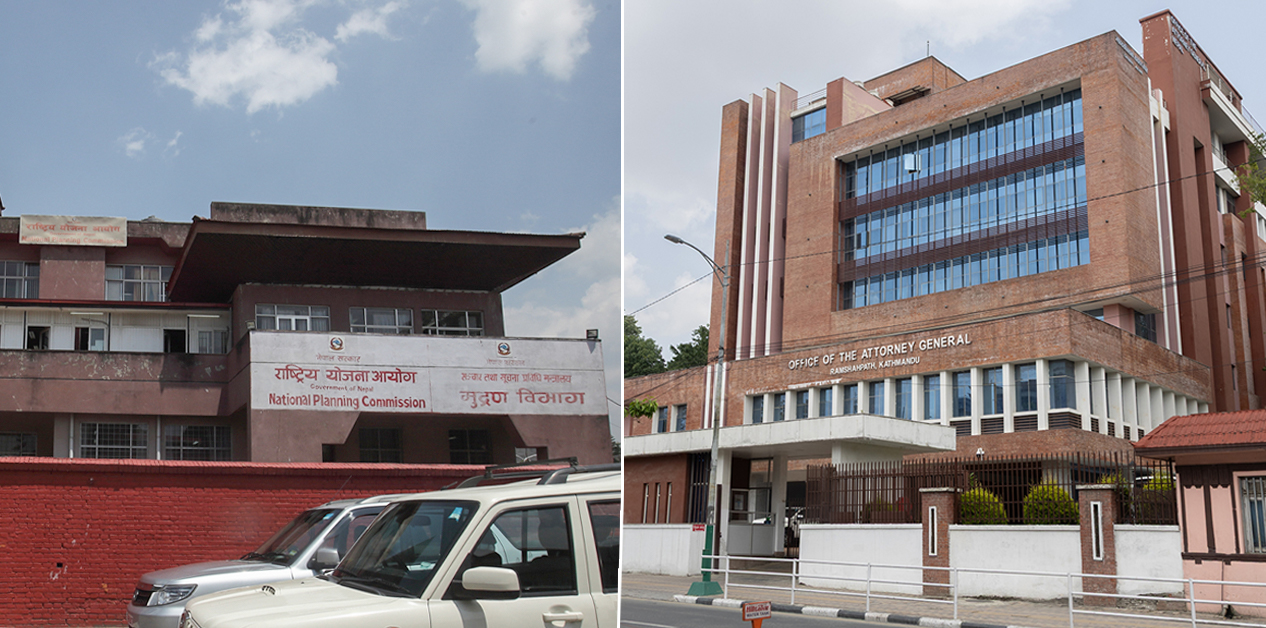
Political appointees stay put despite shift in political landscape

KATHMANDU: Member of the National Human Rights Commission, Surya Prasad Dhungel, resigned from his position on September 14, citing the country’s political changes and new circumstances as the reason for stepping down. “I felt that under these circumstances, it was better to work from outside, so I submitted my resignation,” Dhungel said.
On the same day, Vijay Kumar Gupta, a member of the Madhesi Commission, also submitted his resignation to the President. He stated that the changed political scenario and economic challenges prompted his decision. Speaking to Nepal News, Gupta said, “At a time when the country faces both political and economic crises, I did not feel right accepting expensive vehicles and salaries from the state treasury. In such a situation, would the public respect us or scorn us if we use state resources for personal benefit?”
The Gen Z protests not only toppled the government but also altered the political landscape. Prime Minister and ministers resigned, Singh Durbar was set on fire, and the homes of political leaders were torched. Even the existence of political parties faced a crisis. Recognizing this situation, Dhungel and Gupta resigned; however, many others who hold political appointments in various commissions, boards, and institutions have remained in their positions.
Nepal has 13 constitutional commissions. Among them, the Commission for the Investigation of Abuse of Authority has five politically appointed commissioners. Similarly, the Public Service Commission has five, the Election Commission five, the National Human Rights Commission five, the Office of the Auditor General one, the Natural Resources and Fiscal Commission five, the National Women’s Commission five, the National Dalit Commission five, the National Inclusive Commission five, the Indigenous Nationalities Commission five, the Madhesi Commission five, the Muslim Commission five, and the Tharu Commission five members. Most of these appointees are affiliated with political parties in government.
Resignations like those of Gupta and Dhungel also reflect the high costs associated with these appointments. Members of commissions receive not only salaries and facilities but also vehicles worth around Rs 5 million, monthly fuel allowances of 100 liters, two bodyguards, a personal security officer, and a private secretary. Chairs receive even more extensive benefits. Speaking after his resignation, Gupta said, “It is not right to add further financial burden to the country under the current circumstances.”
Political appointments are also made in Nepal’s foreign embassies, the judiciary, universities, health institutions, National Planning Commission, Press Council, Public Broadcasting Service, Advertisement Board, National News Agency, Insurance Authority, cultural institutions, Nepal Academy, Music and Drama Academy, Youth Self-Employment Fund, and various boards and councils. These appointments generally have fixed tenures.
Legally, except for the National Planning Commission, political appointees are not obliged to resign when the government changes. Yet, it is customary for appointees to resign if the government that appointed them is no longer in power. Some are even forced by incoming governments to resign or face dismissal.
For instance, the National Planning Commission appoints a chairperson and four members. When the prime minister resigns or is removed, their positions automatically become vacant. Following the recent government change, the vice-chairperson and members’ posts have already been vacated, and their names and photos have been removed from the commission’s website.
The chief legal advisor of the government, the Attorney General, is not required by law to vacate the post immediately after the prime minister leaves office. According to Article 157 of the Constitution of Nepal, the Attorney General can serve for the duration desired by the prime minister, and the position becomes vacant only upon resignation, removal by the President on the prime minister’s recommendation, or death. Nevertheless, it is customary for the Attorney General to resign when the prime minister steps down. Following the recent government change, Attorney General Ramesh Badal resigned, and the new government appointed Sabita Bhandari Baral as the new Attorney General.
Similarly, the President appoints provincial chiefs as government representatives in each province, and Nepal also appoints ambassadors abroad. While there is no legal requirement for these representatives to resign after a government change, they often decide based on convenience or political alignment. Former CIAA chief Surya Nath Upadhyay explains that political appointees can resign at their discretion but are not legally obliged to do so.
Currently, the situation is more than a simple change of government. During the Gen Z protests against corrupt governance by political party leaders, 74 people lost their lives. On the first day of the protests, 19 young protesters were killed on September 8. Following this, demonstrators set fire to the homes of key political leaders, looted police stations, stole weapons and uniforms, and set fire to government, commercial, and private buildings on September 9. The Prime Minister and senior party leaders had to be rescued and secured by the army.
After the protests toppled the government, a new political scenario emerged, with a government including individuals beyond traditional parties. In this context, political appointees from previous governments face pressure to resign. However, because the current government’s primary task is to hold elections, replacing incumbents with new appointments is difficult, explains former CIAA chief Upadhyay.
“Even though the government has changed, the constitution remains the same, so they cannot be forced to resign. Yet, due to the altered political situation, they may choose to resign at their discretion,” he said.